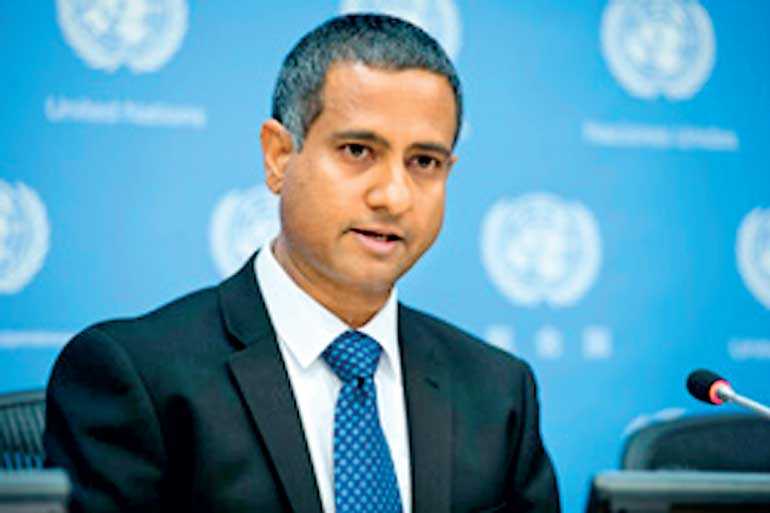Thursday Feb 19, 2026
Thursday Feb 19, 2026
Tuesday, 27 August 2019 00:36 - - {{hitsCtrl.values.hits}}

UN Special Rapporteur on Freedom of Religion or Belief Ahmed Shaheed, concluding his visit to Sri Lanka yesterday, outlined a number of initiatives for the Government to carry out to promote national harmony and called for the prosecution of anyone responsible for violence as well as to develop systems to respond to hate speech in line with international standards.
Releasing a statement after wrapping up his visit Shaheed said the recommendations were particularly important to create an enabling environment to exercise fundamental freedoms in the lead up to elections.
He said the State must prosecute those responsible for violence and incitement to violence, make efforts to dismantle the networks of hate, and facilitate access to justice to victims of hate crimes. “The State should develop systems and mechanisms to monitor and respond to hate speech in conformity the with international human rights standards. The guidance provided by a number of tools developed by the UN system, notably the Rabat Plan of Action on responding to hate speech and the Fez Plan of Action on Responding to Incitement to Mass Atrocity Violence would be valuable for use in training law enforcement officials. These tools should also be disseminated to media persons, civil society actors, religious leaders and political leaders.”
He also said Government leaders and religious leaders must speak out against hateful narratives and reject efforts to ostracise and stigmatise minority communities and persons in vulnerable situations.
“Urgent reforms to the education system must be initiated to foster inclusive identities. International obligations require Sri Lanka to fulfil the right to education in ways that prepare children for responsible life in a free society, in the spirit of understanding, peace, tolerance, equality of sexes, and friendship among all peoples, ethnic, and religious groups and persons of indigenous origin.”
The State should also consider incorporating the elements identified in the Action Plan included in Human Rights Council Resolution 16/18 of 2011, which inter alia calls for fostering inclusion of minority communities, conducting outreach programs with them to build bridges, promoting inter-religious dialogue, he recommended.
State should utilise the Beirut Declaration and its 18 Commitments on Faith for Rights in its activities designed to promote inter-religious dialogue. Such dialogues must be inclusive with voluntary participation of all communities, bringing together not just religious leaders but religious actors that work to advance peace building and human rights, including women and members of religious minorities and the non-religious.
“The social media platforms should invest more in the ability to monitor and respond to incitement to violence while protecting freedom of expression and access to information.”